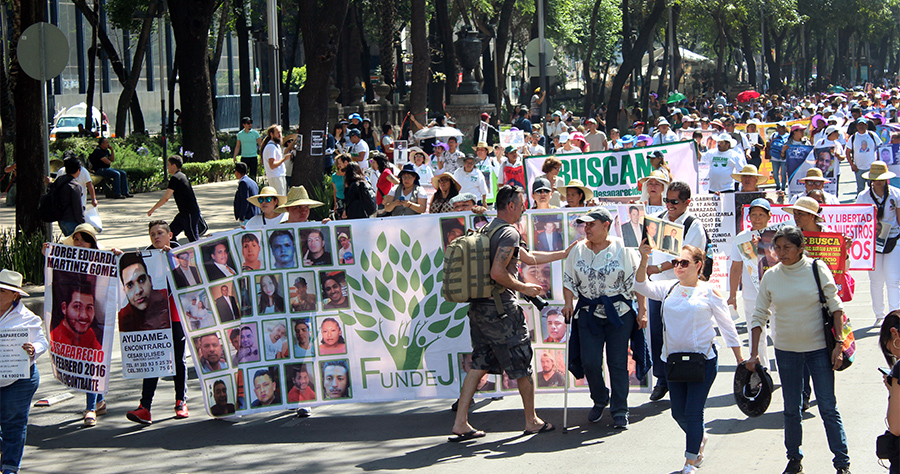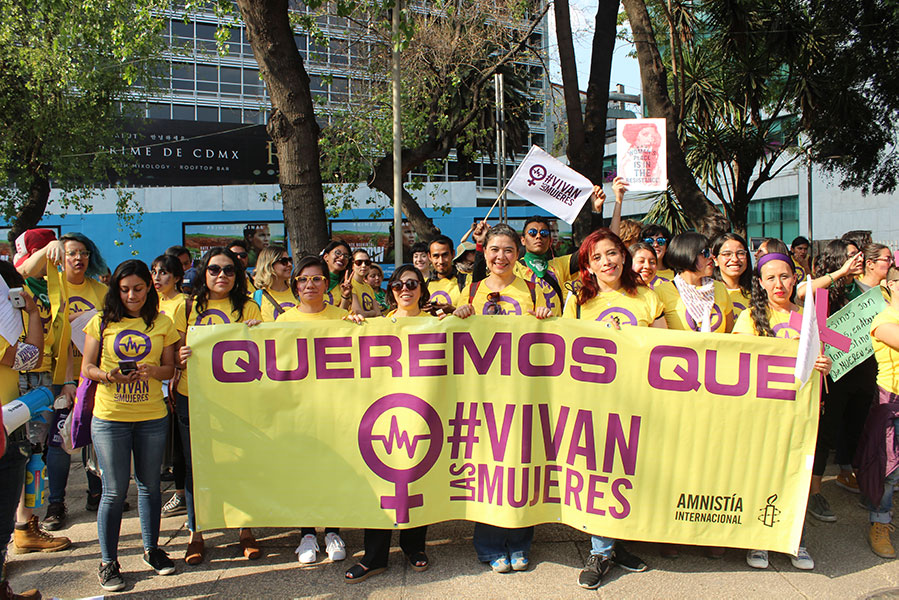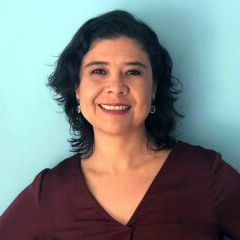Tania Reneaum Panszi, Executive Director of Amnesty International Mexico, writes about the critical work of civil society organizations in Mexico and the challenges created by COVID-19.
Sister Consuelo, the founder of Ciudadanos en Apoyo a los Derechos Humanos, A.C. (CADHAC), or Citizens in Support of Human Rights, recently spoke about forced disappearances, her voice unshakeable—just as steady as her will and dedication. She talked about the supply shortages that individuals searching for forcibly disappeared relatives in northern Mexico face and their struggles to cover basic housing and food.
That same day, Claudia Portela, the coordinator of the Desayunador Salesiano Padre Chava shelter—which offers food and lodging to hundreds of migrants every day—described the situation migrants now encounter: “Since the beginning of the pandemic, things here in Tijuana have been really bad. We have rice and beans for the people who arrive here, but we need more protein and more variety.” Her anguished description told how thousands of migrants are in need of essential services since the closing of the border between Mexico and the United States.

On May 10, 2019, women marched along Reforma Avenue in Mexico City on Mother's Day for their disappeared children.
What would happen to thousands of people without the help of organizations like CADHAC and the Padre Chava shelter? These are two concrete examples that represent the critical work civil society organizations carry out in Mexico.
Thousands of people work in these organizations, addressing varying and complex issues. They support and advocate for incarcerated women, women suffering from domestic violence, Indigenous rights, people searching for disappeared relatives, migrants and people seeking asylum, and health care workers responding to COVID-19.
It is a challenge to continue in the struggle for human rights in the context of the COVID-19 pandemic. We have had to rethink, be creative, and come together, so victims are not left alone in the shadows, abandoned by a government that is so often indifferent to their pain.
One of Amnesty International’s initiatives at the beginning of the pandemic was to advocate for new public policies and government decisions to fully embrace human rights. We issued several recommendations on how government could embrace this COVID-19 response. We have also been monitoring cuts to the Federal Expenditures Budget that affect women in the context of another pandemic: sexual discrimination and violence.

Waiting to begin a march protesting violence against women in Mexico City on November 25, 2019.
An Urgent and Necessary Campaign
As we rethought our work, a broad group of organizations participated in the launch of the campaign #AsíRespondimos (#ThisIsHowWeRespond). Our objective was to bring attention to the work we do and increase support for different organizations to continue their work with people in vulnerable situations during the pandemic.
The campaign also sought to strengthen the organizations’ communication strategies with public authorities to demand that they respond with sustainable government programs, heed community voices, and address the needs of the most affected communities.
Civil society organizations have shown that we are an important counterbalance to the Mexican state’s decisions and an advocate for the most urgent causes. Our work has been fundamental for supporting the neediest in the places where the state is absent, either by omission or through inaction. We have created a collective memory of human rights violations, demanded justice, and guarantees that the abuses will not be repeated.




